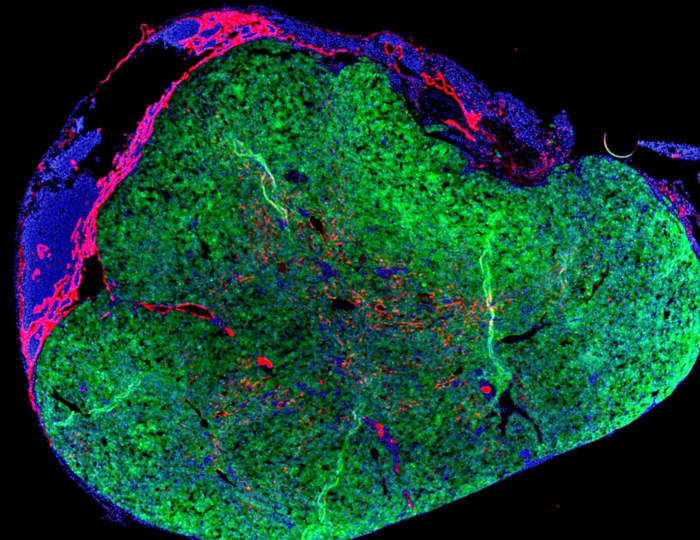Never before has a topic been studied so intensely as the new coronavirus, SARS-CoV-2.
The scientific community has published nearly 350,000 studies on the pathogen, according to the British company Digital Science.
But one year on from the start of the pandemic, important questions about the virus remain unanswered.
EL PAÍS spoke with several experts about the five major unknowns about the coronavirus.
How did the coronavirus cross into humans?
It is still not known how the novel coronavirus reached the live animal and seafood market in Wuhan.
Dutch scientist Peter Ben Embarek, the head of the World Health Organization (WHO) mission sent to China to investigate the origins of the pandemic, said on February 9 that it is “extremely unlikely” that the virus came from a laboratory.
The WHO committee of experts is working with the main hypothesis that the coronavirus originated in bats and crossed into humans via an intermediary animal species, such as a mink or fox living in one of China's crowded fur farms.
Other researchers, such as French virologist Etienne Decroly, from Aix-Marseille University, are more skeptical.
“There continue to be various possible hypotheses - zoonoses [an infectious disease that is naturally transferable from vertebrate animals to humans], a laboratory accident, etc. - and they must be investigated in-depth,” he says.
Decroly is one of 26 researchers who signed an open letter addressed to newspapers across the world, including EL PAÍS, to demand “a full and unrestricted international forensic investigation” into the origins of the virus.
The authors of the letter highlight the lack of transparency in China and ask for “all possible scenarios” to be considered, including the possibility that a laboratory worker was infected while handing animal samples.
The Wuhan Virology Institute is 14 kilometers from the live animal market, considered to be the source of the initial outbreak, but there is no evidence that the virus came from this scientific institute.
Meanwhile, Argentine doctor Fernando Polack, the leader of two of the most important trials of the Pfizer Covid-19 vaccine, calls for measures to reduce the risk of future pandemics.
"How is the world going to regulate the health situation of live animal markets, which represent an impending risk for a repeat of these events?"
he asks.
How long does a vaccine's protection last?
The best news of the pandemic is that Covid-19 vaccines prevent practically 100% of serious cases.
But according to virologist Isabel Sola, there is still a lot that is unknown about the inoculations.
“We still don't know how long immunity, both natural [from having recovered from a coronavirus infection] and that induced by vaccines, lasts for.
Nor do we know how potent is this immunity and whether it completely protects against infection or just against the disease, ”explains Sola, who is the co-director of an experimental Covid-19 vaccine in Spain's National Biotechnology Center (CNB-CSIC) in Madrid.
If the current vaccines don't stop asymptomatic coronavirus cases, then the vaccinated should continue to wear face masks while in the presence of those who have not been immunized in order to prevent possible contagions.
Many studies have already been launched to investigate this issue, and the preliminary results suggest that vaccines also prevent a large number of asymptomatic infections.
Sola explains that depending on the body's immune response there are three possible scenarios: the vaccines currently available will provide enough protection;
yearly vaccinations will be needed;
or new vaccines will have to be developed to stop asymptomatic infections and prevent serious cases of Covid-19.
Will the new variants of the coronavirus worsen the pandemic?
The coronavirus has not stopped mutating.
The uncontrolled spread of the pandemic facilitated the arrival of new variants of the virus that partially escape human defenses - such as the strain detected in South Africa and Brazil - and that are even more lethal, as is the case of the variant first detected in the United Kingdom, now present in around 100 countries.
According to Spanish pathologist Elisabet Pujadas, a researcher at the Icahn Medicine School at the Mount Sinai hospital in New York, one of the biggest unanswered questions is about how effective the current Covid-19 vaccines will be against these new strains.
Pujadas argues it is “very possible” that the vaccine will need to be periodically redesigned to target these variants, as happens with the annual flu shot.
Why do some people die from the virus while others don't even notice they have it?
In Spain, the coronavirus killed close to 1% of all cases recorded outside of senior residences, according to a study from the National Epidemiology Center, based on data from the first wave of the pandemic.
The lethality of the coronavirus in men over the age of 80 is 12%, more than double the figure for women.
Another big question, according to Sola, is why the virus kills some people, while others don't even realize they are infected.
Pujadas agrees that this unknown needs to be addressed: “In the most serious cases, we are seeing exaggerated immunological responses and hypercoagulability [the increased tendency of blood to thrombose].
We need to understand what is happening on a molecular level in order to develop more effective and personalized treatments. "
Venezuelan doctor Alberto Paniz Mondolfi highlights another mystery: why a very small margin of children with the virus - 0.02% of all cases recorded in under-18s in Spain - has suffered a serious condition associated with the coronavirus known as multisystem inflammatory syndrome in children or MIS-C.
“Deciphering the causal determinants of this condition is one of the most important doubts we have in studying Covid,” says Paniz Mandolfi, who also works at New York's Mount Sinai hospital.
The syndrome has affected more than 2,600 children in the United States, 66% of whom were Hispanic or Black, and led to 33 deaths, according to US health authorities.
What will life be like after the pandemic?
This is one of the most important questions.
Doctor Paniz Mondolfi underscores that there are four types of coronavirus now linked to the common cold that made the leap from animals to humans in the past.
“It's possible that in the future Covid will be an infection that occurs commonly, with possible outbreaks likely to be linked to the seasons,” he says.
As an example, Paniz Mondolfi points to the great pandemic of the 19th century, the so-called Russian flu between 1889 and 1890. In 2005, a team led by Belgian virologist Marc Van Ranst discovered that the cause of that pandemic was not a flu virus, but rather a coronavirus called OC34, which today is practically harmless.
“This is a clear example of the path the SARS-CoV-2 virus could be taking: from the protagonist of a pandemic to the supporting actor in flu seasons.
Only time will tell, ”he says.
The head of Spain's National Epidemiological Center, Marina Pollán raises many questions about the future: “Will face masks be commonplace?
How will the move to online meetings affect our psychology and social interaction?
How will the idea of another person being a potential transmitter of infection change our way of relating to one another? "
The epidemiologist hopes society is able to learn lessons from the coronavirus pandemic, such as the need to improve care of the elderly and the importance of strengthening the health system and scientific research.
“We are intelligent, an experience like this should help us to recognize weak points in how we organize ourselves and improve them,” says Pollán.
Pujadas adds another incognita to the list: how much care will be needed by patients with so-called "long Covid."
Spanish version by
Melissa Kitson
.

/cloudfront-eu-central-1.images.arcpublishing.com/prisa/MD4YIQB7IIWHMIIB2LGDR2IBYM.jpg)












